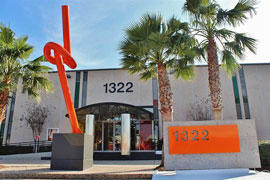Keeping pace with the Local Search industry sometimes requires the help of a translator. You’ve got a trusted partner with Big Splash Marketing.
Attribute
The distinct characteristics of a local business listing that can include name, address, phone, links, keywords and other unique content items.
Anchor Identity
The core Name, Address and Phone (NAP) local business listing attributes used by local search platforms to compare accuracy of listing identities they have, with those appearing on other local search platform sites. Consistency in NAP information is vital to increasing the number of local search platform citations and improving search platform rankings.
Business Listings Identity Management
Business Listings Identity Management is the ongoing process of authoritatively updating and verifying business listing information for Local Search. It enables businesses to certify, enhance, update and continually improve their local business listings for distribution to authorized local search platforms. In turn, these platforms receive verified, consistent Name, Address and Phone (NAP) information, for presentation to users, linkability with listings on other platforms, and a user feedback channel to reduce customer service costs and improve business listings quality.
Certified Listing
A certified listing is one that has been directly claimed by the authorized owner or manager of that business and verified by Big Splash Marketing. Local search platforms have the highest level of confidence that certified listings are trusted and accurate.
Citations
A “vote of confidence” local search platforms apply to a Local Search business listing each time they find a matching business listing’s Name, Address and Phone (NAP) and descriptive information and links when crawling other sites. Citations are used to determine the level of accuracy, confidence and popularity of business listings for presentation to users.
Confidence Code
The Local Listings Confidence Code assesses the validity and accuracy of local business names, phone numbers and addresses and dynamically applies a score to each listing. The scores range from 0-100 with 100 being a perfect score. To arrive at a score, local business listings are driven through a comprehensive and ongoing process employing 14 individually weighted validation parameters which include recency of update and validity of the listing owner. When combined, these elements apply an aggregate quantitative value to each listing, which represents its overall strength. This tool gives local search platforms complete control over the selection and filtering of data they receive through the powerful Local Listings Enhanced Business Registry. Big Splash Marketing recommends that local businesses insure that their score is as high as possible by proactively validating and updating their content periodically to ensure it is accurate and complete.
Crawl
The act of electronically “reading” and indexing relevant information from Web pages by a search platform.
Descriptive Identity/Enhanced Business Listings
The extended identity of Local Search business listings that businesses add and local search platforms utilize to present deep, rich information to users to help them make informed buying decisions and get additional channels of contact. Local business listing Descriptive Identity attributes include well-organized keywords such as hours of operation, languages spoken, payment methods accepted, products and brands carried, services offered and important links including Web site, social links, logos and more.
Findability
The likelihood of a Local Search business listing being presented on a local search platform based on consumer keyword query matches and other ranking factors. Also known as Visibility.
Hyperlocal
An adjective used to describe a local search platform, Web site or Web content that is specific to a particular local neighborhood, town or geography.
Internet Yellow Pages (IYP)
Web-based Yellow Pages are local search platforms that allow consumers to find local businesses. These can be as simple as digital versions of the traditional paper Yellow Pages directories.
Keywords
Unstructured words/terms used by online consumers to describe what they hope to find when performing a Web search, and locally, where they hope to find it.
Listings Submission
The process of a business or a third-party manually inputting local business listings across multiple local search platforms. Listings submission can be sub-optimal for several reasons: it increases the likelihood of input errors and inconsistencies; it does not link new inputs to current listings in local search platforms for suppression or removal; there is normally no contracted relationship between the submitter and the local search platform, thus the source of the listings may be suspect and the listings may not receive high rankings.
Local Search
The process of online consumers looking to find qualified local businesses by entering unstructured, “top of mind” (key) words, phrases (characterized by “what” the consumer is looking for) and geographic modifiers (e.g. “Chicago, IL”, or “where” the consumer is looking) in online search platforms.
Local Search Platform
An online Web site(s) containing searchable local business information, maps and other localized content.
Local Search Platform Results
The Web pages containing local business listings returned on a local search platform, as the result of “What-and-Where” local search queries performed by online consumers.
Mobile Local Search
The specialized access to and presentation of local search platform business listings and other local content to Smart Phones and other mobile devices.
NAP
Name, address and phone number or NAP is the core or anchor information that makes up a basic online business listing’s identity. Creating, distributing and managing consistent NAP information is essential to increasing the number of citations and improving search platform rankings for Local Search business listings.
Organic or Natural Search
Non-paid local search platform results delivering local business listings and Web site links relevant to the keyword query entered by a local search platform user.
PPC
Pay Per Click (PPC) is a term for paid or “sponsored” advertising programs on local search platforms and other sites, in which businesses are charged a fee when a searcher clicks on their advertisement.
Paid-Search/Search Platform Marketing
Also known as Pay Per Click (PPC), Paid-Search marketing is when online advertisers bid to have brief text-based “Sponsored Link” ads displayed when a searcher enters a keyword search term. (Furniture makers might bid on the term “couch,” for example.) Advertisers only pay when the searcher clicks on the link in their ads, which are usually above or to the right of local organic search platform results.
Ranking
Algorithmic “scoring” of Local Search business listings and Web site pages by search platforms, using weighted factors to determine the listing or page’s relevance for presentation to a consumer based on the search term/keyword(s) entered by a search platform user.
Ranking Factors for Local Search
For Local Search business listings, the primary ranking factors include: distance from a pre-determined centerpoint (“Centroid”—determined by a latitudinal and longitudinal geo-code) from where the searcher is located; category searched; accuracy and depth of information and increasingly, the source of the content and the recency of its last update by the source.
ROBO
This acronym stands for Research Online, Buy Offline—when consumers research a product online either from their computer or mobile device and then go to a brick-and-mortar location to actually purchase the item they were researching.
SEM
Search Engine Marketing is a form of Internet marketing that promote Web sites by increasing their visibility in search engine result pages (SERPs) through the use of search engine optimization (SEO), paid placement, contextual advertising and paid inclusion.
SEO
Search Engine Optimization is the process of improving the volume of traffic to a Web site by making it more visible to search platforms for keyword queries relevant to what the site’s content contains. SEO is often measured by the increase in number of site visitors via all non-paid forms of search, such as organic, local, universal, social and mobile.
SERP
Search Engine Results Pages (SERP) are the results (organic and paid) that appear after a user enters a keyword search.
Social Search
A search for a person or business that is conducted while in a social program such as Twitter®, Facebook® or Foursquare®.

